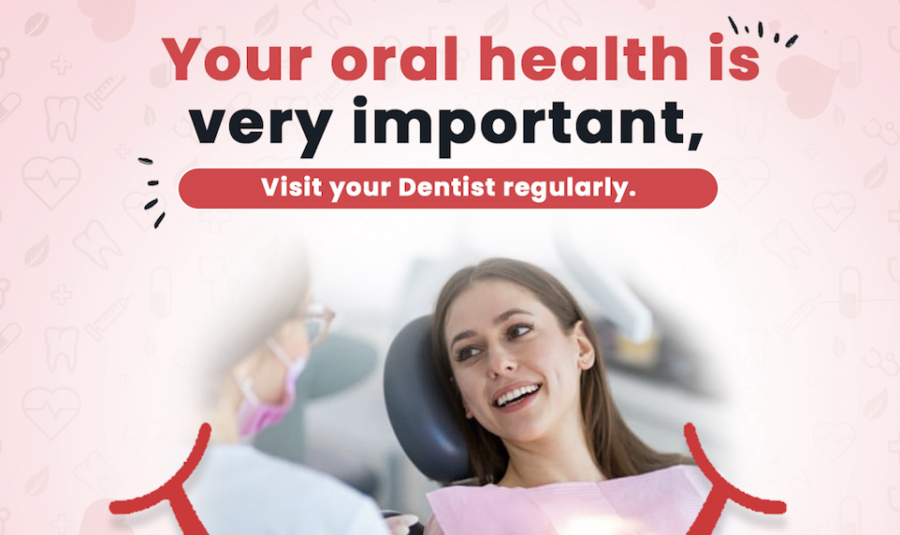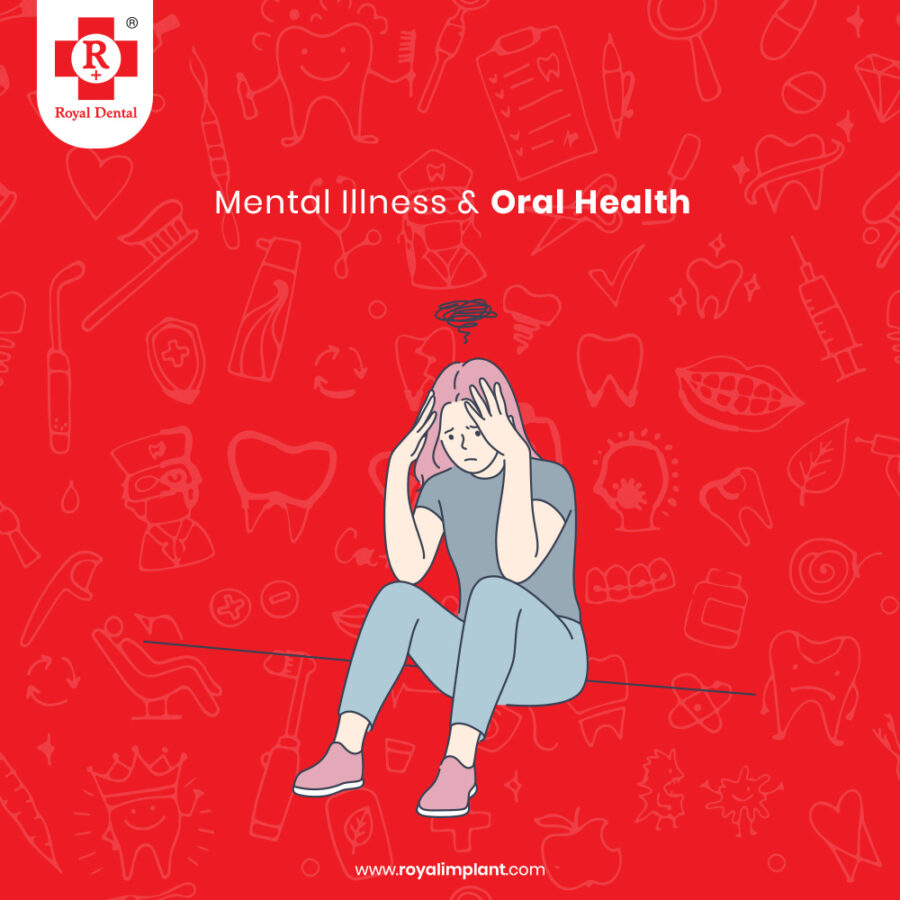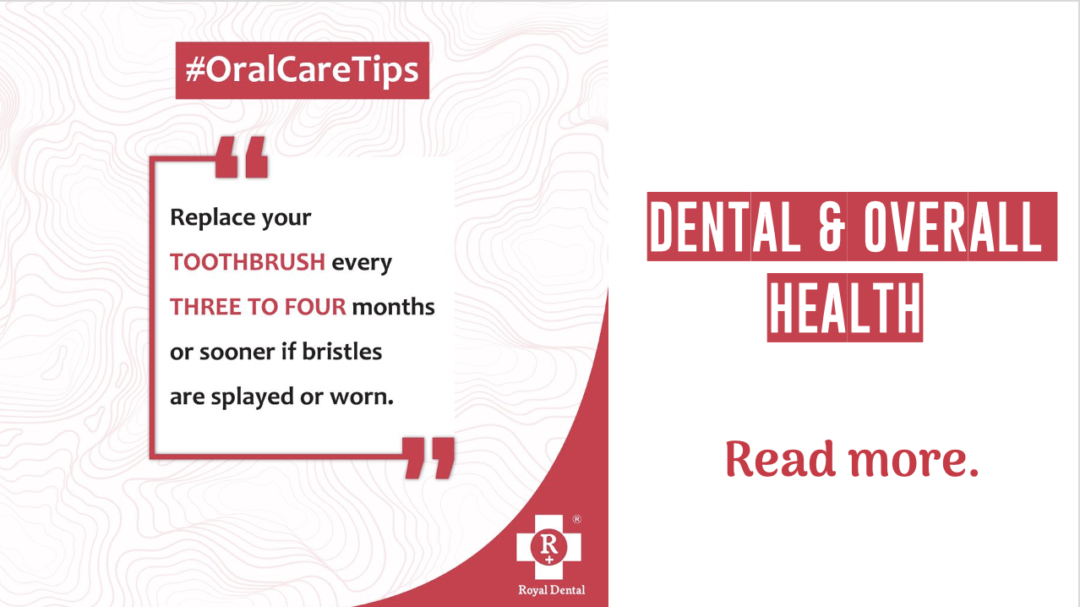Oral health is not just about having white teeth and a sweet smile. It’s also about how we feel inside. How you take care of your oral health can have a positive impact on your mental well-being. On the other hand, poor dental hygiene could lead to serious issues with depression, anxiety, and even suicide. This is because there’s a connection between oral health and various aspects of our mental well-being. Here we’ll explore the relationship between oral health and other bodily functions like our immune system, memory, and stress response as well as focus on individuals who are at risk for developing serious diseases like periodontitis or gingivitis due to their age or genetics.
Greater risk for dental decay and tooth loss can lead to more frequent pain experience, social isolation, and low self-esteem, and reduce quality of life and in turn possibly being associated with poorer mental and overall health.
Oral Health and Depression
It is linked to many aspects of our mental health, including depression. People with poor oral hygiene are at a higher risk of experiencing depression. This is because depression can be caused by a variety of factors, including hormonal and chemical imbalances in the brain. Which eventually can increase one’s risk of these imbalances, increasing one’s risk of depression.

In fact, some researchers believe that gum disease can be linked to cortisol levels. Cortisol is a hormone that is released in response to stress and is sometimes called the “stress hormone.” When your cortisol levels are high, your body experiences many negative effects, including an increased risk of depression.
Oral Health and Anxiety
Oral health is also linked to anxiety. People with poor oral health tend to experience more anxiety than those who maintain healthy teeth and gums. This is likely because anxiety and stress are linked to many of the same issues that poor oral health can cause. When cortisol levels are high, for example, your brain can be negatively affected.
People with poor oral health, then, can have higher cortisol levels, which can result in feelings of anxiety. Additionally, when you have pain in your mouth, particularly if the pain is caused by an oral disease like tooth decay or gum disease, you may feel anxious because of the pain.
Why is Oral Hygiene so important for Mental Health?
Your mouth is full of bacteria that can cause bad breath, cavities, and other oral health issues. However, if this bacteria is kept in check, it can be harmless. However, if the bacteria in your mouth is allowed to grow out of control, it can become harmful to your health. If your oral health is not up to standard, bacteria can travel through your bloodstream and affect other parts of your body.
Your mouth is connected to your entire body through your bloodstream. This means that bacteria from your mouth can travel to any part of your body. Your gums are also connected to your nervous system. This can indicate that you have gum disease and other oral issues like cavities. Bad oral health can affect any part of your body. It can cause damage to your heart and lungs, cause headaches and make them more severe, and even make it harder for you to think clearly and focus.
What are the signs that you have bad Oral Health?
Bad breath – Bad breath is the most common sign of bad oral health. If you have bad breath, it’s usually a sign that there is a build-up of bacteria in your mouth.
Cavities – Cavities can also be a sign that you have bad oral health. Cavities are areas in your teeth where bacteria have been allowed to grow out of control. This is due to not brushing your teeth regularly and not flossing.

Gum disease – Gum disease is a common oral health issue that can affect your mental health if it isn’t treated. If you have gum disease, it means that the bacteria in your mouth has spread to your gums and is causing damage to them.
Bleeding gums, Dry mouth, severe Tooth decay and erosion are also signs of unhealthy oral care. General health problems, including diabetes, cancer, rheumatoid arthritis, osteoporosis and dementia.
Ways your Oral Health affects your mental wellbeing
Bad oral health can affect your mental health in a number of ways. It can lead to or worsen mental health issues like anxiety and depression. Having bad oral health can make it harder for you to think clearly and focus. It can also make it more difficult for you to communicate with other people. If you don’t take care of your teeth and gums, it reduces your confidence in yourself.
It makes you feel less confident about yourself when you speak with other people or even just look at yourself in the mirror. It can also make you feel less confident when you eat in front of other people. can make it harder for you to maintain healthy eating habits. it can make you feel less confident in your sexuality. Bad oral health can make you feel less attractive and less sexually desirable. It can also make it harder for you to perform sexually.
Tips to maintain Oral Health and keep Mental well-being
Brush your teeth twice a day: Brush your teeth twice a day to reduce bacteria in your mouth and keep it clean.
Floss regularly: Flossing removes bacteria from between your teeth. If you don’t floss, bacteria can build up in this area and can lead to gum disease.
Use fluoride toothpaste: Fluoride toothpaste can help prevent cavities and gum disease. Use mouthwash to remove food particles left after brushing and flossing.
Get regular dental check-ups: It’s important to go to the dentist regularly to have your teeth cleaned and examined. It can help identify issues before they become serious.
Try meditation: Keeping your mental health in check is just as important as your oral health. Meditation can help improve your mental health and reduce anxiety.
Right Diet for Teeth: Eat a healthy diet and limit sugary food and drinks.
Conclusion
Bad oral health can affect your mental health in a number of ways. If you don’t take care of your teeth and gums, it can lead to or worsen mental health issues like anxiety and depression. It can also make it more difficult for you to think clearly and focus. It can also make it harder for you to communicate with others and feel confident. However, if you maintain good oral health, it can have the opposite effect. It can keep your mental health in check and make it easier for you to think clearly and focus. Your oral health affects your mental health, so it’s important to take care of your pearly whites to ensure that your mental health stays in tip-top shape!






